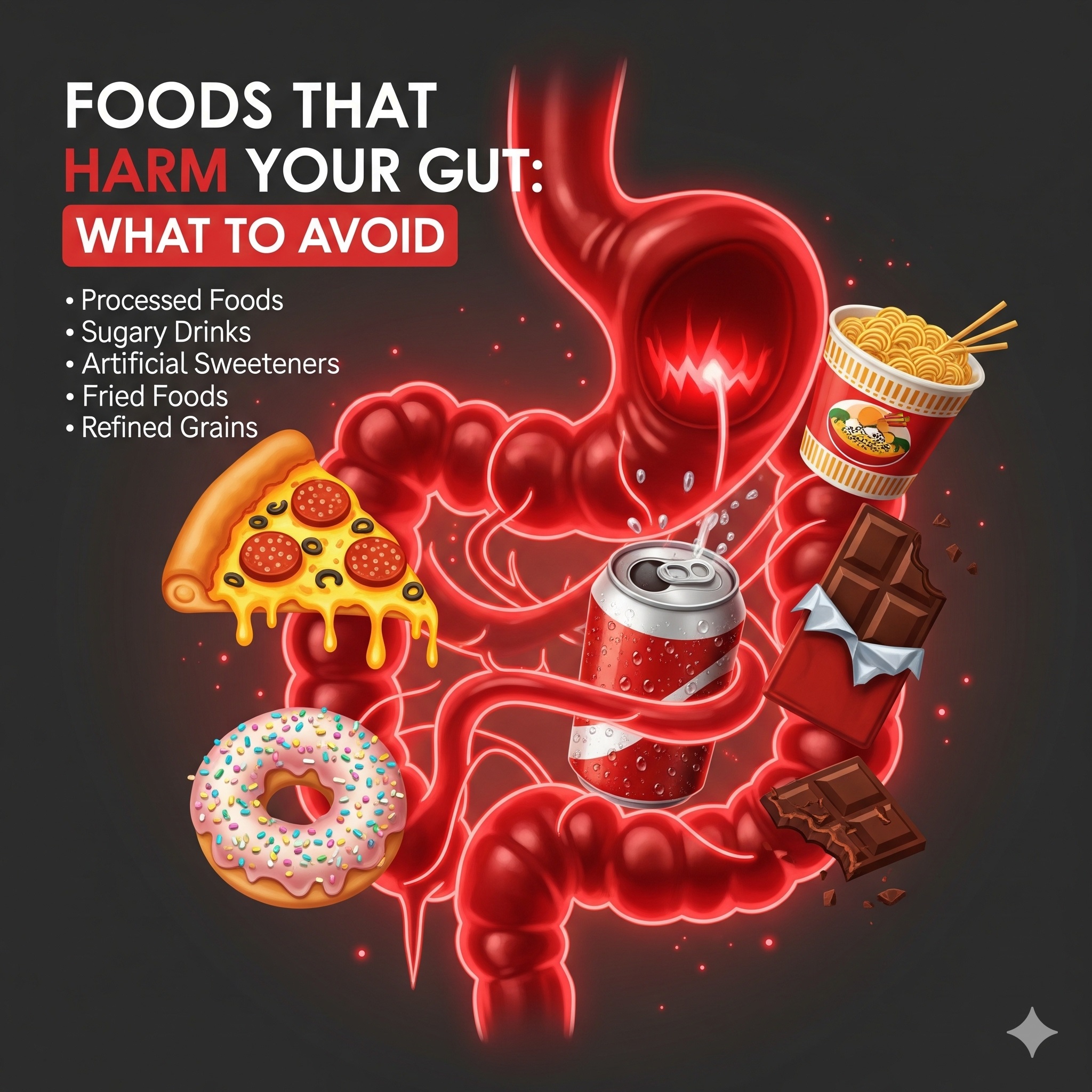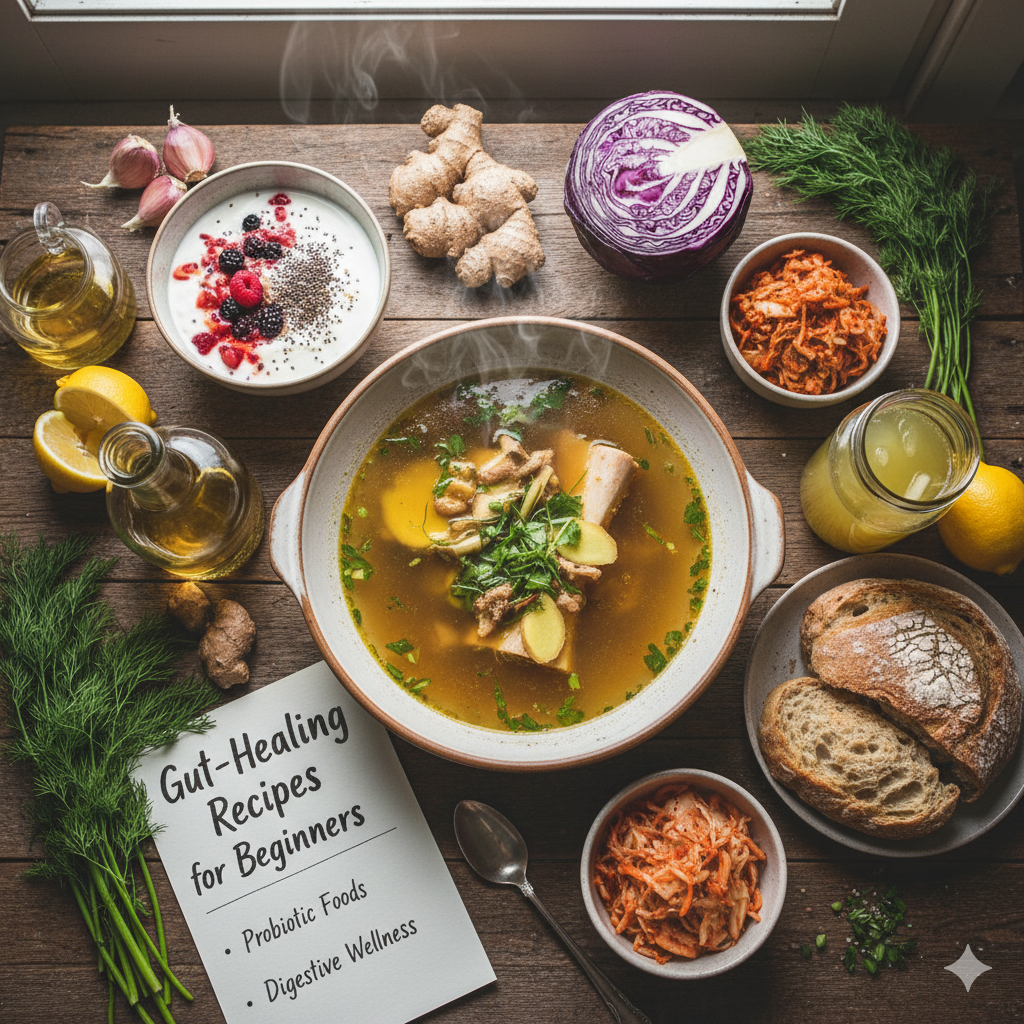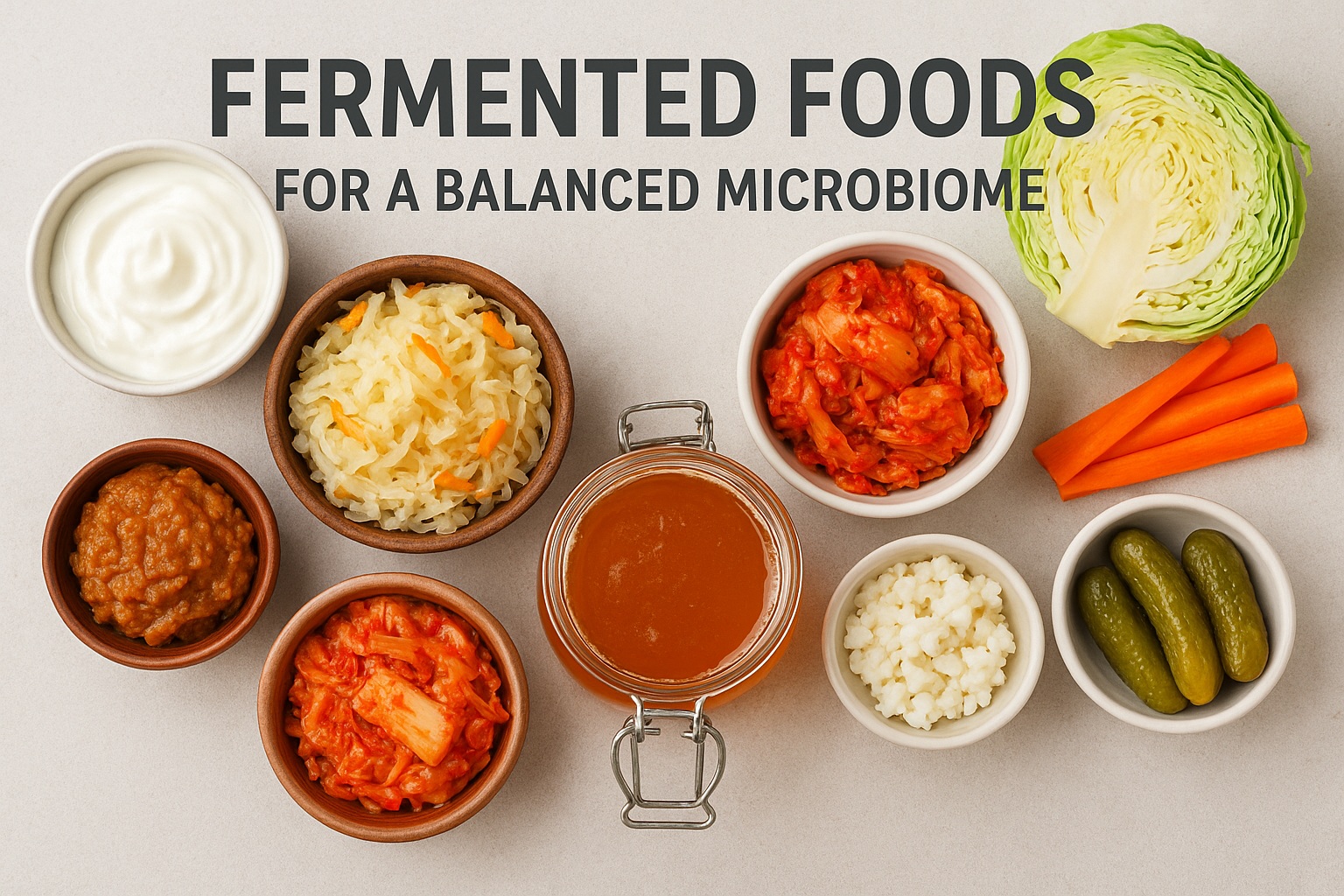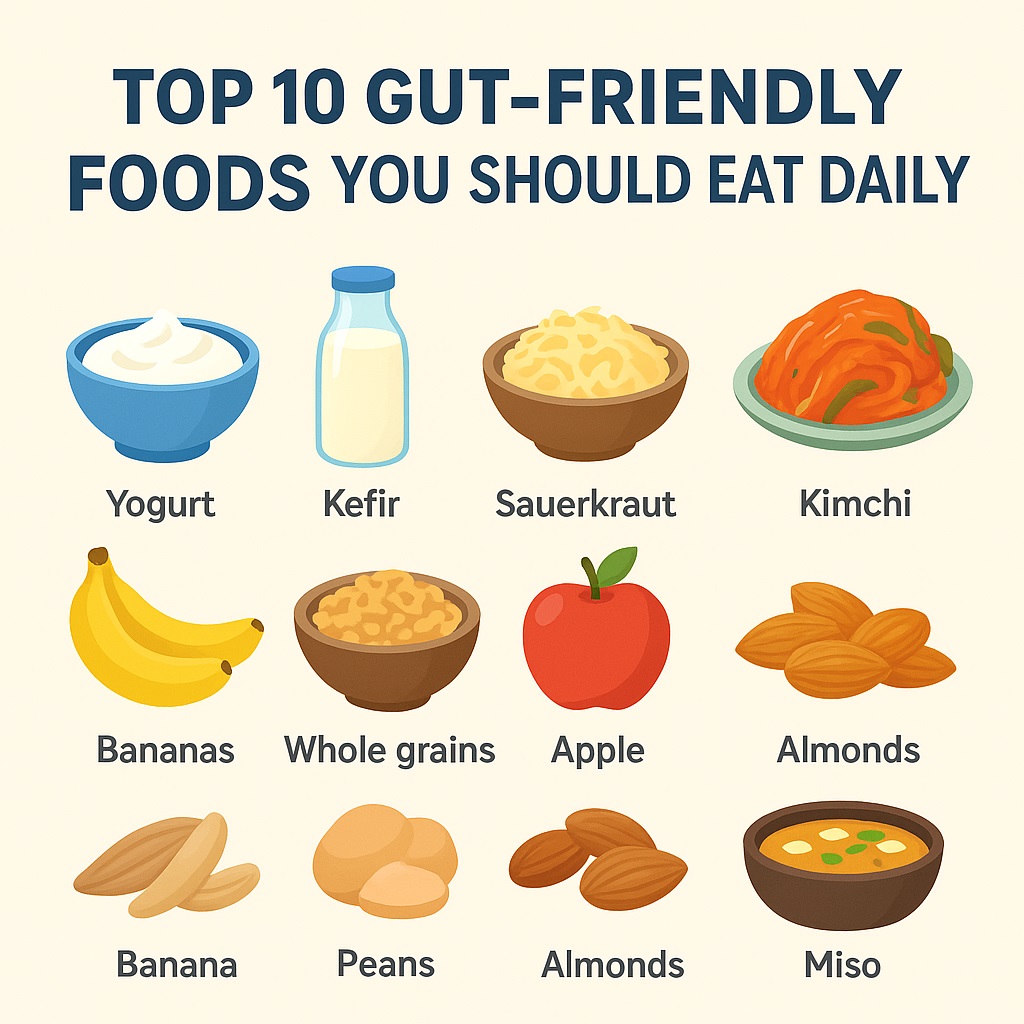Your gut is often called your “second brain” because it does much more than digest food. It houses trillions of microbes, regulates your immune system, and even influences mood and mental health. While a balanced diet rich in fiber, fermented foods, and whole nutrients can promote gut health, certain foods have the opposite effect. Consuming the wrong items regularly can disturb the microbiome, cause inflammation, and trigger uncomfortable symptoms such as gas, constipation, or diarrhea.
In this article, we’ll explore the most common foods to avoid for gut health, why they are problematic, and how to make healthier swaps.
Why Gut Health Matters
Before diving into harmful foods, let’s quickly highlight why protecting your digestive system is so crucial:
- Microbiome balance: A healthy gut hosts a variety of bacteria that support digestion, vitamin production, and immunity.
- Immune defense: Around 70% of your immune system resides in the gut.
- Nutrient absorption: Damaged gut lining can lead to nutrient deficiencies.
- Mental well-being: The gut-brain axis links digestion and mental health.
When you consistently eat an unhealthy diet, the delicate balance in your gut shifts toward harmful bacteria, making you more prone to chronic conditions and everyday digestive problems.
Foods That Harm Your Gut
Here are the biggest offenders when it comes to gut-damaging foods:
1. Processed and Packaged Foods
- Why they harm: Loaded with preservatives, artificial sweeteners, additives, and unhealthy fats. These ingredients disrupt microbial balance and encourage inflammation.
- Common examples: Chips, frozen dinners, processed meats, sugary cereals.
- Gut impact: Contributes to bloating, digestive problems, and even “leaky gut.”
2. Excessive Sugar and Sweets
- Why they harm: Sugar feeds harmful gut bacteria and yeast like Candida. Overgrowth leads to cravings, mood swings, and gut dysbiosis.
- Common examples: Candy, soda, pastries, flavored yogurts.
- Gut impact: Promotes bloating, gas, and fatigue while weakening the gut lining.
3. Artificial Sweeteners
- Why they harm: Ingredients like aspartame, sucralose, and saccharin have been shown to negatively affect the microbiome.
- Gut impact: Can alter beneficial bacteria, leading to glucose intolerance and digestive discomfort.
4. Fried and Greasy Foods
- Why they harm: High-fat fried foods slow digestion and stress the gut. They often trigger acid reflux and bloating.
- Common examples: French fries, fried chicken, doughnuts.
- Gut impact: Promote gas, cramping, and sluggish digestion.
5. Dairy (for Sensitive Individuals)
- Why they harm: Many people are lactose intolerant and cannot digest milk sugar properly.
- Common examples: Milk, cream-based sauces, ice cream.
- Gut impact: Causes bloating, diarrhea, and digestive problems in lactose-sensitive individuals.
6. Gluten-Containing Foods
- Why they harm: For people with celiac disease or gluten sensitivity, gluten can damage the gut lining and cause chronic inflammation.
- Common examples: Bread, pasta, baked goods.
- Gut impact: Triggers bloating, fatigue, and nutrient malabsorption.
7. Red and Processed Meats
- Why they harm: Harder to digest and linked to harmful compounds that disturb gut balance.
- Common examples: Bacon, sausages, deli meats, burgers.
- Gut impact: May lead to constipation, gut inflammation, and higher colon cancer risk.
8. Alcohol
- Why it harms: Excessive alcohol damages the gut lining, reduces beneficial bacteria, and increases permeability.
- Gut impact: Leads to bloating, diarrhea, and gut issues, while also impairing liver function.
9. Carbonated and Sugary Drinks
- Why they harm: Cause gas buildup and spike blood sugar, leading to microbial imbalance.
- Common examples: Soda, energy drinks, sweetened sparkling water.
- Gut impact: Increase bloating and acid reflux.
10. Highly Spicy Foods
- Why they harm: While spices in moderation can be beneficial, excessive chili and hot sauces may irritate the stomach lining.
- Gut impact: Trigger acid reflux, burning sensations, and indigestion.
Common Symptoms of Eating Gut-Damaging Foods
Regularly eating these bloating foods and harmful ingredients may cause:
- Persistent bloating and gas
- Irregular bowel movements (constipation or diarrhea)
- Cramping and abdominal pain
- Fatigue after meals
- Food cravings, especially sugar
- Increased inflammation and weakened immunity
If you recognize these signs, it may be time to adjust your diet and remove certain foods to avoid for gut health.
Healthier Swaps for a Happier Gut
Instead of focusing only on restriction, try replacing harmful foods with gut-friendly alternatives:
- Swap processed snacks → raw nuts, fruit, homemade granola.
- Swap sugary desserts → dark chocolate, chia pudding.
- Swap soda → kombucha, sparkling water with lemon.
- Swap fried foods → baked or air-fried options.
- Swap heavy dairy → lactose-free or plant-based milk.
- Swap white bread/pasta → whole grains like quinoa and brown rice.
These swaps not only prevent unhealthy diet patterns but also actively support a balanced microbiome.
Tips for Protecting Gut Health
- Eat a variety of fiber-rich foods (vegetables, beans, whole grains).
- Include fermented foods (yogurt, kimchi, kefir, sauerkraut).
- Stay hydrated for smoother digestion.
- Manage stress, which directly impacts gut health.
- Limit antibiotics unless absolutely necessary.
Final Thoughts
Your gut is central to your health, and the foods you eat play a huge role in how well it functions. By cutting down on foods to avoid for gut health—such as processed meals, fried foods, excessive sugar, and alcohol—you can reduce digestive discomfort and promote long-term wellness.
Instead of falling into the cycle of an unhealthy diet filled with bloating foods, make conscious swaps that nourish your microbiome. Small changes today can lead to a healthier digestive system and better overall well-being.




